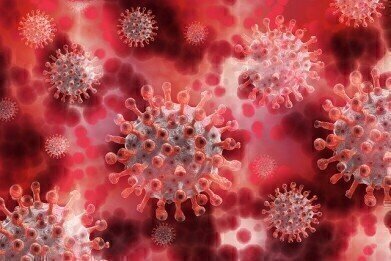Laboratory Products
Can COVID-19 Affect the Brain?
Aug 02 2020
While COVID-19 is primarily a respiratory illness that attacks the lungs, some doctors warn the SARS-CoV-2 virus can cause severe damage to the brain. Scientists are just beginning to develop an understanding of the impact COVID-19 can have on other organs, with a new study published in the journal Lancet Psychiatry cautioning brain complications such as psychosis and stroke have been linked to the illness.
While the study was relatively small and based largely on observations made by doctors, it raises concerns over the widespread impact the disease can have on the entire body, including the brain. It focussed on patients treated at British hospitals in April, with specialist doctors asked to record the clinical details of COVID-19 patients experiencing neurological complications potentially linked to the disease.
Growing link between COVID-19 and psychiatric complications
“There have been growing reports of an association between COVID-19 infection and possible neurological or psychiatric complications, but until now these have typically been limited to studies of 10 patients or fewer,” explains Benedict Michael, lead author of the study and Senior Clinician Scientist Fellow and Honorary Consultant Neurologist at the University of Liverpool. “Ours is the first nationwide study of neurological complications associated with COVID-19, but it is important to note that it is focused on cases that are severe enough to require hospitalisation.”
The dangers of severe inflammation
Of the 125 cases explored in the study, 77 patients experienced strokes. Of these, 57 were ischaemic stroke caused by blood clots in the brain. Nine of the strokes were caused by brain haemorrhages and one was triggered by blood vessel inflammation. This type of data builds on existing observations suggesting COVID-19 can cause blood clots and severe inflammation throughout the body, not just in the lungs.
Almost 40 patients experienced confusion or behavioural changes, seven diagnosed with a brain inflammation condition called encephalitis. 23 of the patients in this group were newly diagnosed with psychosis or a similar psychiatric condition after contracting COVID-19. While there is a possibility the conditions were pre-existing and undiagnosed, the team say it’s worth investigating further.
COVID-19 “more than a respiratory infection”
“This report describes often striking cases of neurological and psychiatric illness as being sometimes associated with severe COVID-19 in hospitalised patients,” says Michael Sharpe, a professor of psychological medicine at the University of Oxford. “It reminds us that COVID-19 is more than a respiratory infection and that we need to consider its link to a variety of other illnesses.”
N the race to find a vaccine or treatment for COVID-19, science will be front and centre. To find out more about the latest advances within the static light scattering field don’t miss ‘Particle Measurement by Laser Diffraction’ with insight from Dr Günther Crolly on behalf of Fritsch GmbH.
Digital Edition
Lab Asia 31.2 April 2024
April 2024
In This Edition Chromatography Articles - Approaches to troubleshooting an SPE method for the analysis of oligonucleotides (pt i) - High-precision liquid flow processes demand full fluidic c...
View all digital editions
Events
Apr 22 2024 Marrakech, Morroco
Making Pharmaceuticals Exhibition & Conference
Apr 23 2024 Coventry, UK
Apr 23 2024 Kintex, South Korea
Apr 23 2024 Seoul, South Korea
Apr 24 2024 Jakarta, Indonesia

.jpg)


.jpg)













